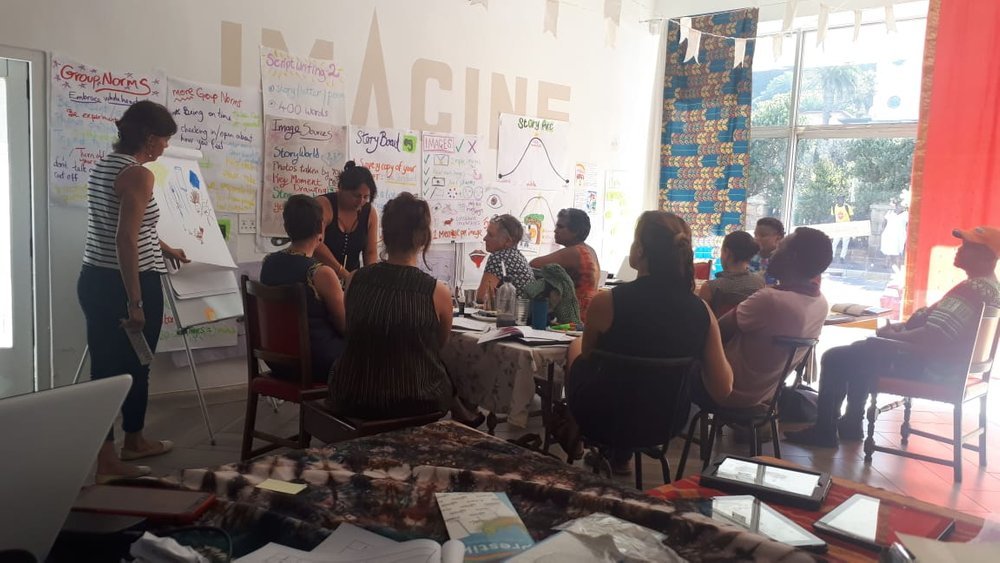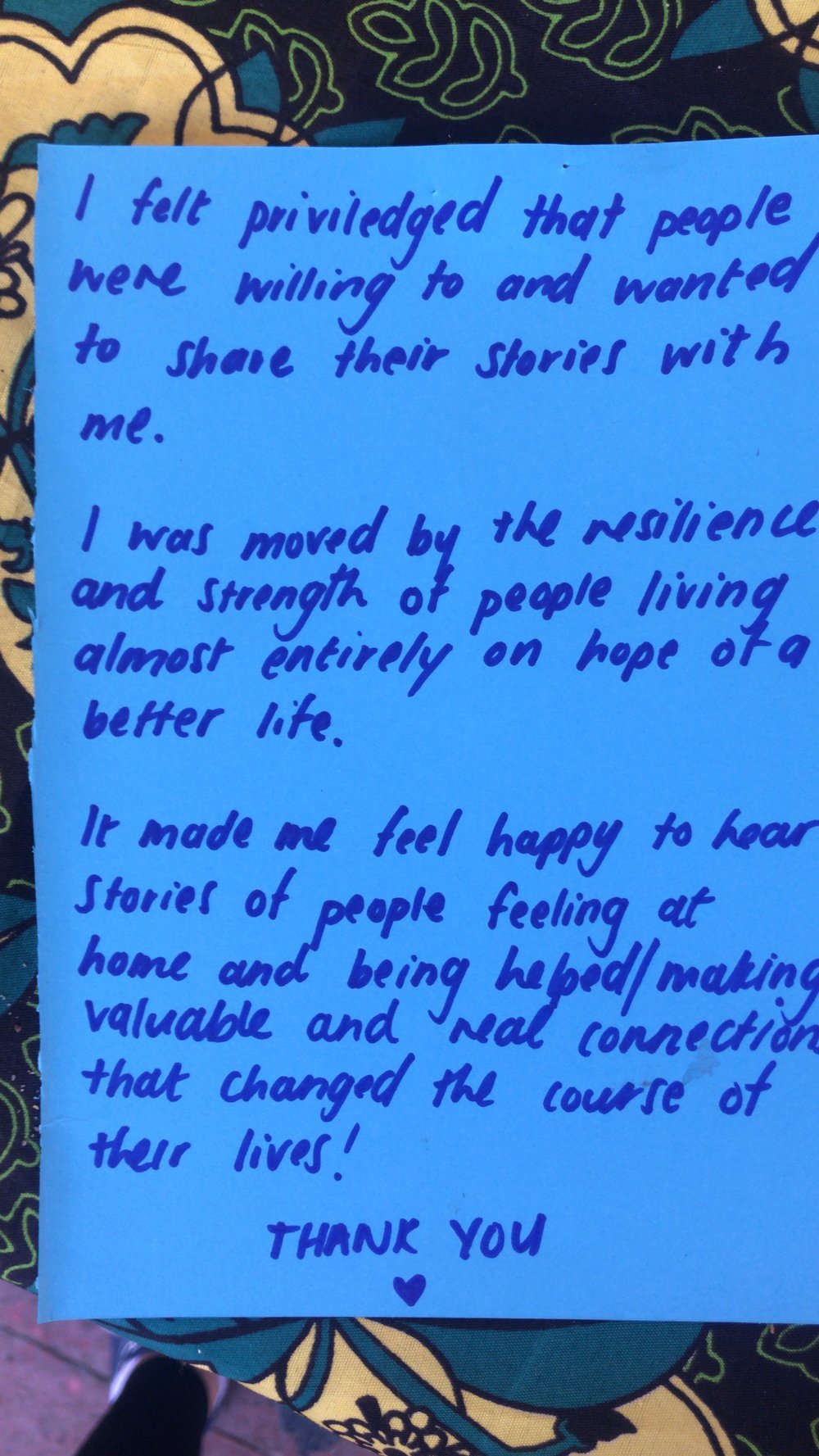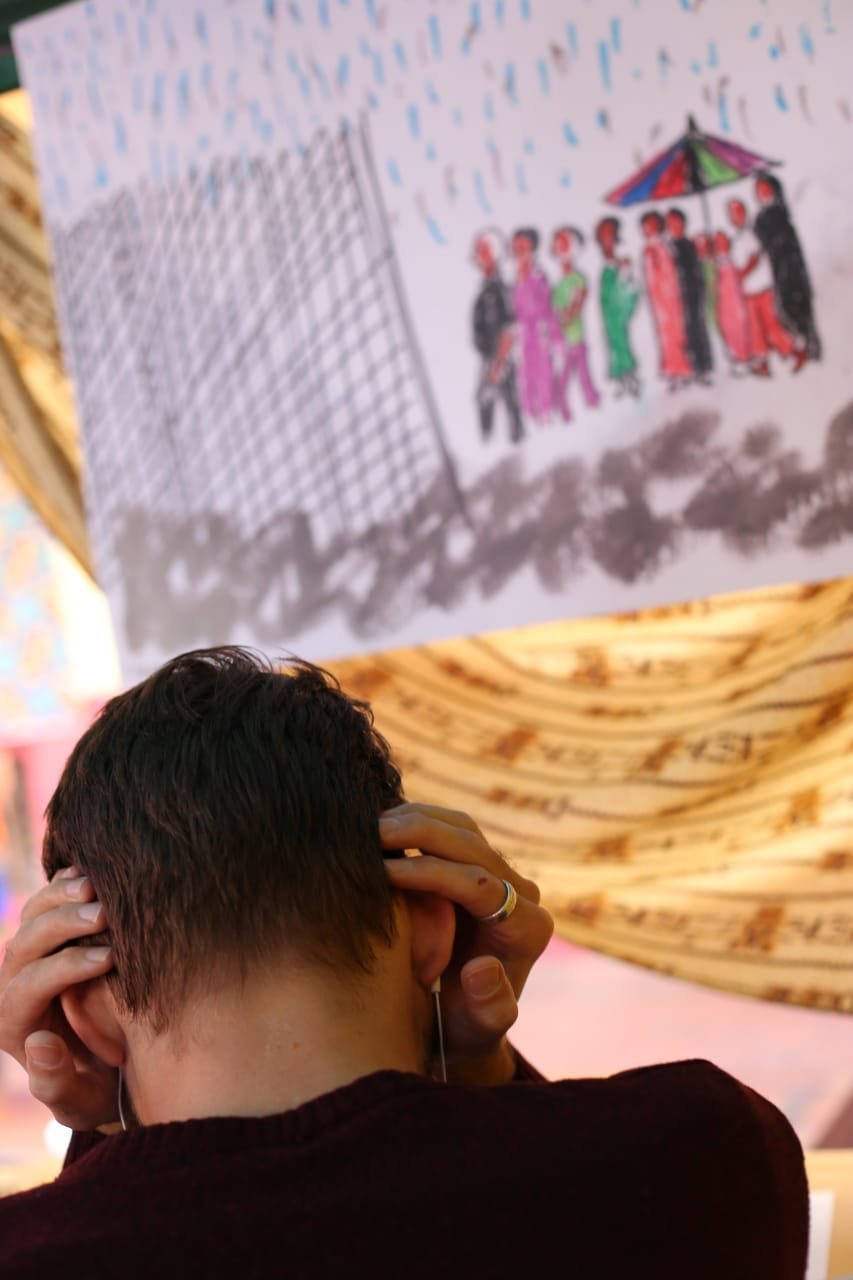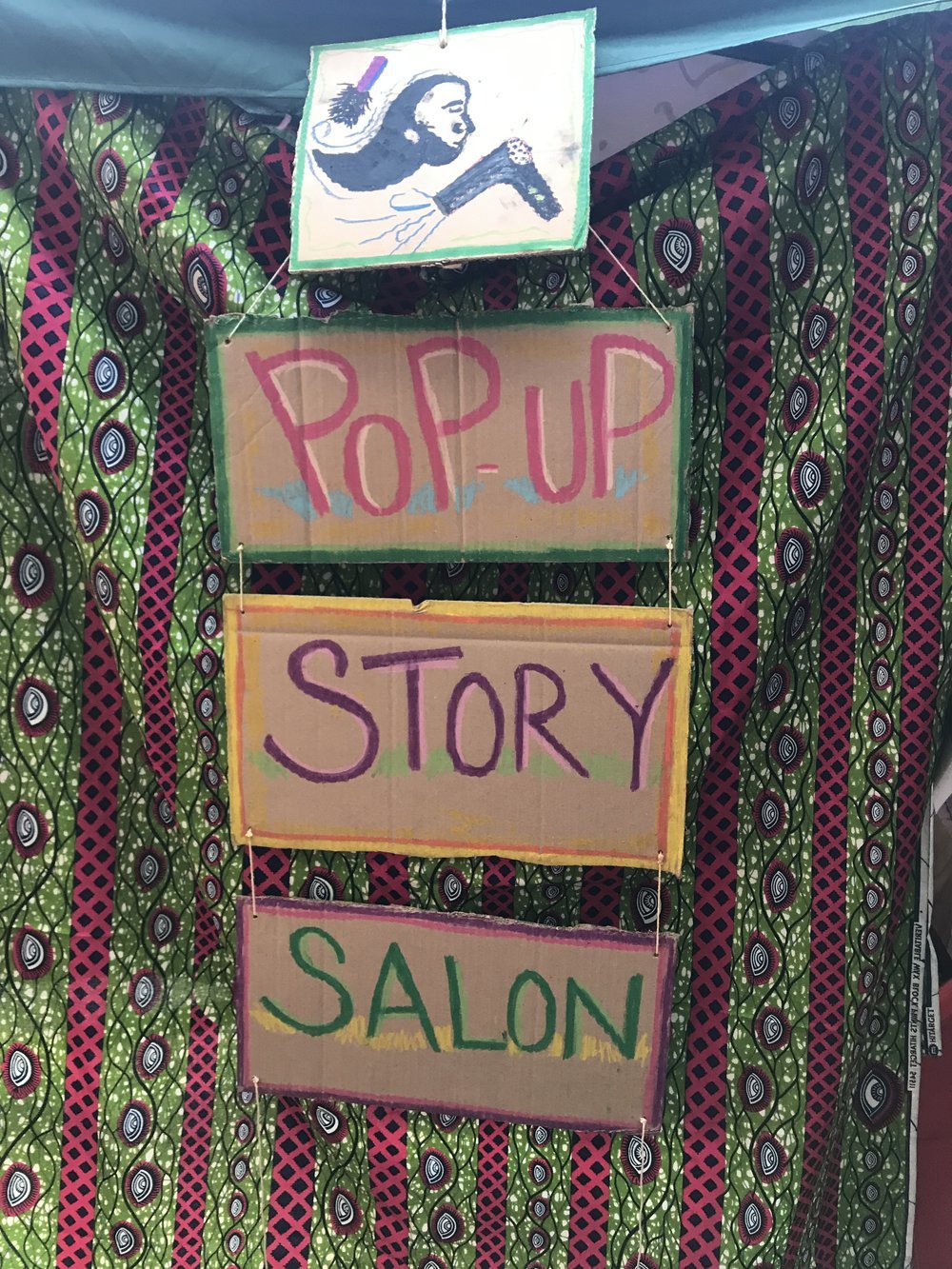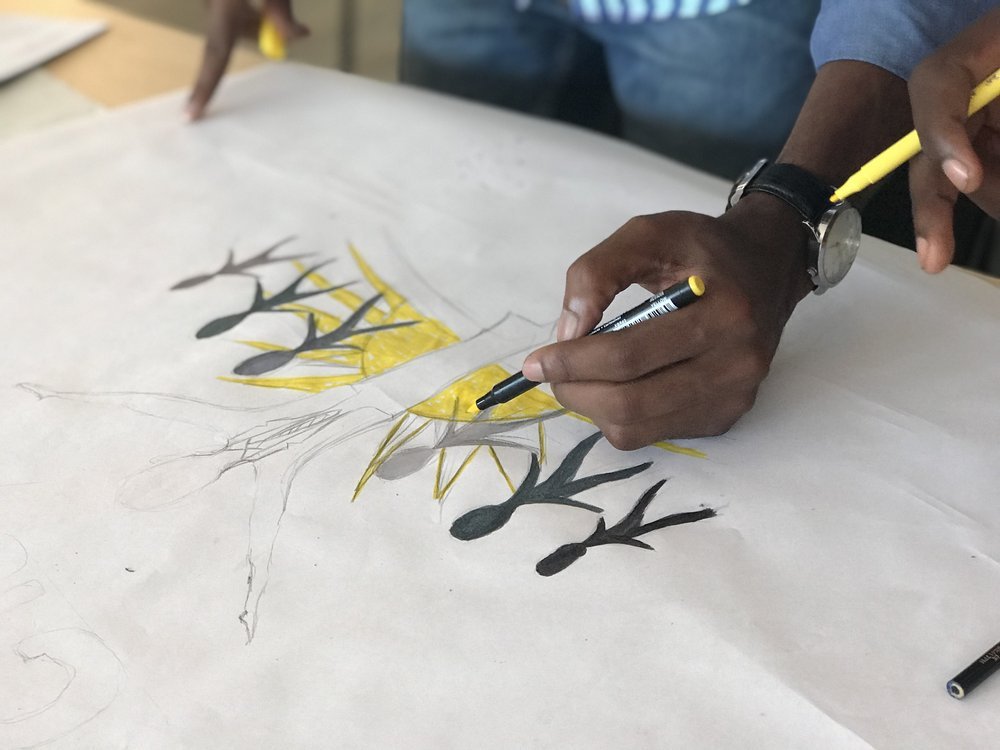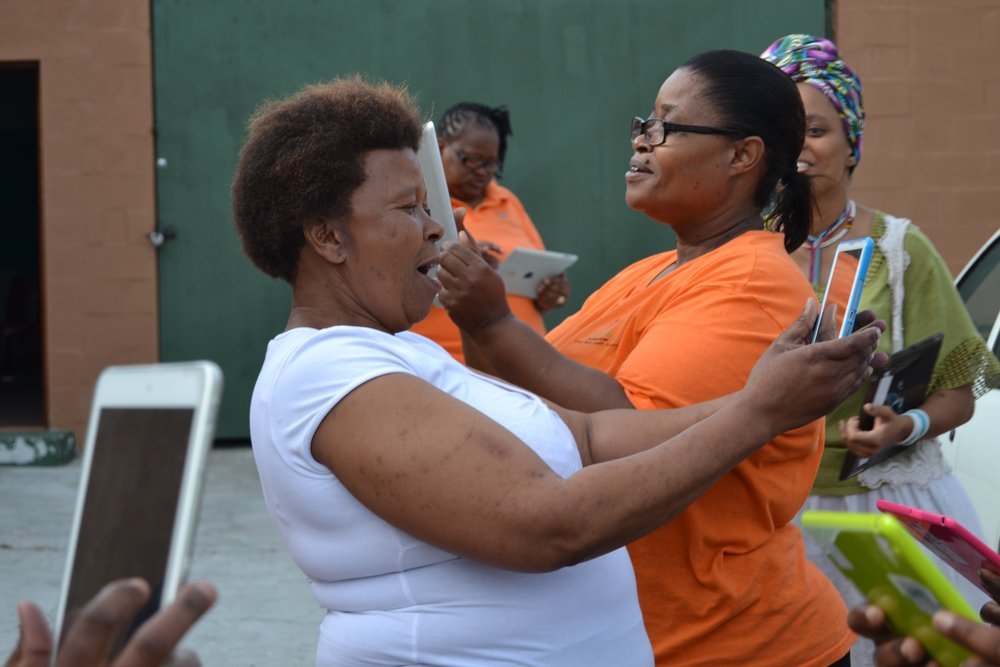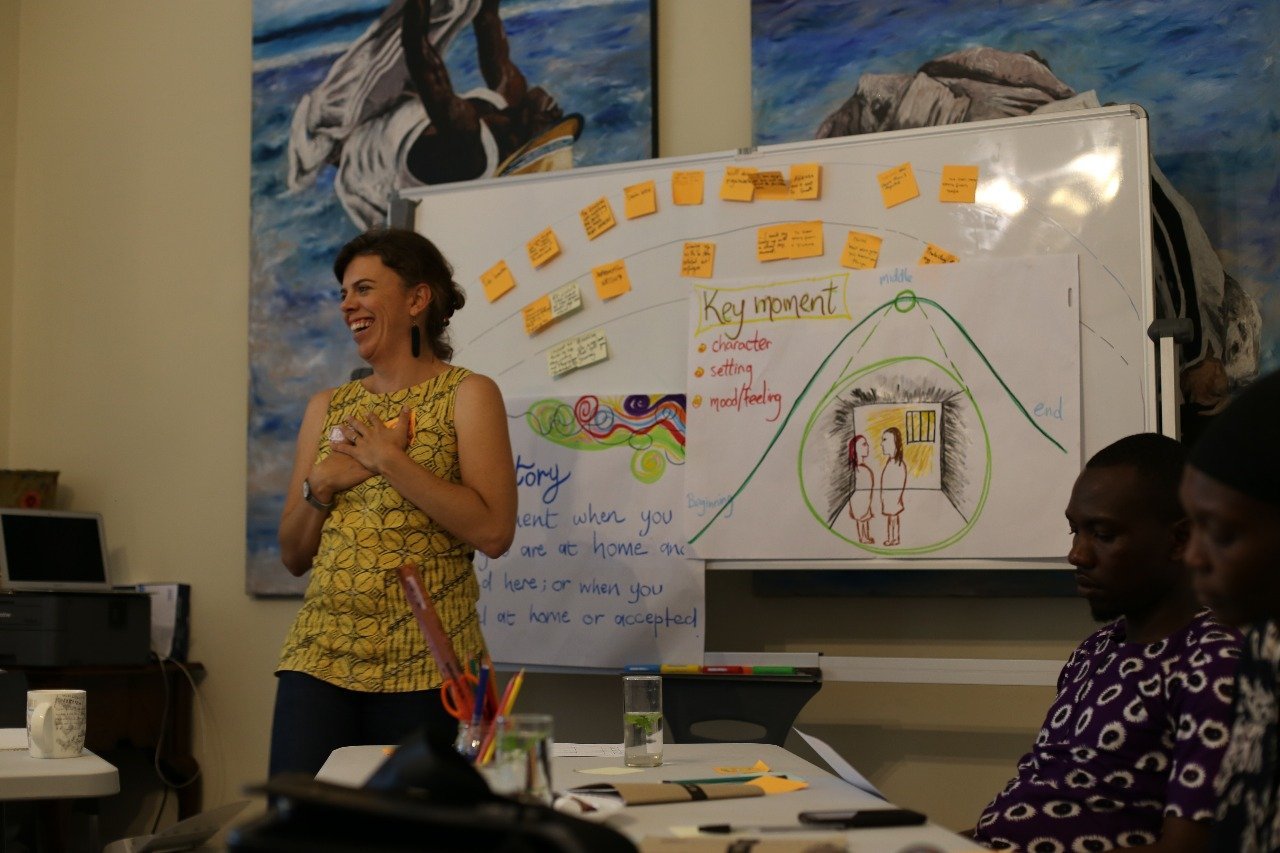
About us
What is TransformativeStory
Tell your story. Learn to help others tell theirs.
This approach gives you the tools and knowledge to create complex and multi-layered personal stories through reflective and creative cycles of iteration. Building trust and recognition through group processes, each person finds a story they want to tell, and the way they want to tell it. Our courses help you learn from your own experience of telling your story to help you design a research approach to help others tell theirs.

“I came in expecting to learn about facilitation, and I did – but I also ended up learning a lot about myself. The course invited a level of reflection I wasn’t expecting, and it felt almost therapeutic in places. It encouraged me to slow down, consider how others experience the world, and become more thoughtful to how I show up to group settings. That kind of learning stays with you, and I think I will keep developing ongoing skills long after the course has ended.”
Brittany Timms, NCPCC UK, Creative Facilitation for Storytelling participant
Transformative story work builds the potential for more inclusive research
Transformative storywork is an approach that includes working with techniques and methods for telling stories, methods for using story structure and story elements to convey experiences and over the longer term, can be used to build relationships between researchers and storytellers to make meaningful changes.
STAGE ONE
Learn tools and techniques for storytelling, from creative writing to making storyscapes and animations. There are many way to tell stories and you need a suitcase full of techniques so that you can find the right ones for your research
STAGE TWO
Learn to incorporate tools and techniques into methods that use story structure and story elements to develop a research method appropriate for your work. There are many well-established story-based methods that can convey information and emotions in an accessible format, and you can learn how to adapt these methods for your research.
STAGE THREE
Go further and learn how storytelling can be an intersectional and power-aware approach. Learn how to ensure that being heard and recognised are part of the storytelling process. Find the best ways for stories and storytelling to be used to challenge exclusions, inequities and oppression and make your research more inclusive and transformative.
“What surprised me about the storytelling process was how everyone could produce a story which was immensely moving and meaningful as well as interesting to watch. How people who never thought they were creative found that they were. This course was one of the most impressive examples of facilitation I have ever experienced…just the right amount of tailored coaching, coaxing, pushing and pulling.”
Dr Dee Jupp, Technical Advisor, Empatika, Foundations of Personal Storytelling participant
